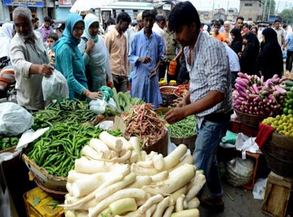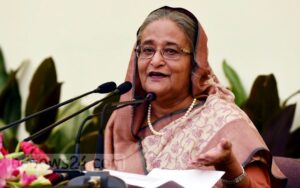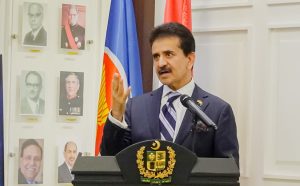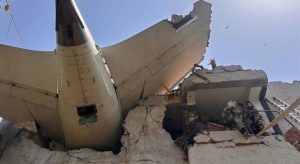India-Muslim-onislam.png" alt="image:Onislam" width="420" height="311" /> Spiraling inflation hit India Muslims hard in Ramadan. (Photo:Onislam)
New Delhi, 13 Ramadan 1435/11 Juli 2014 (MINA) – Affected by soaring temperatures and absence of rainfall, spiraling inflation has hit India Muslims hard in Ramadan, with the religious minority finding it hard to cope with soaring prices of fruits, vegetables and other essential items.
“The prices are too high this year. Price of almost everything has doubled in the last one year but we have to buy things during this month,” Shadab Zafar, a Muslim woman in Delhi.
“I don’t know how much the prices will have risen by the time we will celebrate Eid at the end of the fasting month,”she said, Onislam quoted by Mi’raj Islamic News Agency (MINA) as reporting, on Thursday (7/10).
For the 160 million Muslims in India, Ramadan is the time not only for fasting but for feasting also.
Also Read: Pakistan Condemns Israeli Settler Attacks in West Bank, Al-Aqsa Storming
Muslims across the country are flocking to the markets to buy essential items although it is making a hole in their pocket.
During the month, almost all Muslim families organize evening Iftars (evening meal to break fast), where not only family members but also near and dear ones gather to break their fast with dates, fruits and juices.
Apart from that, poultry items and traditional desserts are also very much part of their menu every day.
But this year, it seems to be a quiet affair with the prices going out of hand for an average middle-class Muslim.
Also Read: China Criticizes US-Drafted UN Gaza Resolution as Vague, Abstains from Vote
“We are really finding it difficult to manage our expenses this month. Everyone in the family expects that Iftar (evening meal) should be grand with lots of things to eat,” said Shabnam Khan, a Muslim in central India.
“But we have to keep it under control as the prices of fruits and other things are too high.”
Ramadan, the holiest month in Islamic calendar, started in India on Monday, June 30.
In Ramadan, adult Muslims abstain from food, drink, smoking and sex between dawn and sunset.
Also Read: Former Bangladesh PM Sheikh Hasina Sentenced to Death
Muslims dedicate their time during the holy month to be closer to Allah through prayers, self-restraint and good deeds.
Government Blamed
A few months after the appointment of the Bharatiya Janata Party (BJP) government, led by Narendra Modi, people were irked by the government’s failure to live up to their expectations with a rise in the price of petrol and diesel in the country.
“They must do something to rein in prices. At least they should think about the poor and the middle class,” Afsar Ahmed, a bank executive, told OnIslam.net.
Also Read: Pakistan Declares State of War After Car Bomb Incident
“You are not going to get a thing at the same price even if you go next day to buy it.”
But there is very little, the government could do at the moment.
India witnessed one of the driest June since 1901. Inflation and below normal monsoon rains are the biggest worries for the government.
Rainfall deficit should be a major cause of concern for the Modi government as India’s farm sector contributes 14 percent to the country’s gross domestic product (GDP). Half of India’s 1.25 billion population depends on monsoon for agriculture.
Also Read: Jakarta Hosts Gala Dinner for World Peace Forum Delegates
Analysts believe that a good monsoon would be necessary for the nation’s economy. The Reserve Bank of India’s monetary policy would also be affected by monsoon, as it is going to impact both inflation and growth.
India’s Meteorological Department had predicted that the weather phenomenon El Nino could limit monsoon rains this year, which would ultimately hit crop production.
India has received 45 percent less rainfall in first spell till June 17. The Met department officials have predicted monsoon to be below normal at 93 percent.
For the poor Muslims in India, it’s a constant struggle to survive and for the upper class, it’s a struggle to maintain their standards.
Also Read: Indonesian Minister Urges Synergy Between Wasathiyah Islam and Chinese Wisdom
Even businessmen are not happy with sales during Ramadan. They believe that the inflation is also affecting them.
Shahid Ijaz runs a grocery store. He said that people have drastically cut their purchases with prices rising almost every day.
“There is no shortage of anything here, but the prices have really made it difficult for the people to buy things at their will,” he told OnIslam.net.
“Our sales have almost dropped by fifty percent compared to the same period last year.” (T/Nidiya/E01)
Also Read: New Delhi Covered in Toxic Smog: Residents Say ‘We Can Hardly Breathe’
Mi’raj Islamic News Agency (MINA)







![Israeli tanks and APC’s gather by the Israeli – Lebanese border. Amid Israel’s escalating campaign against Hezbollah in Lebanon on September 30, 2024. [Erik Marmor/Getty Images]](https://en.minanews.net/wp-content/uploads/2024/10/IMG_20241001_203226-300x197.jpg)























 Mina Indonesia
Mina Indonesia Mina Arabic
Mina Arabic